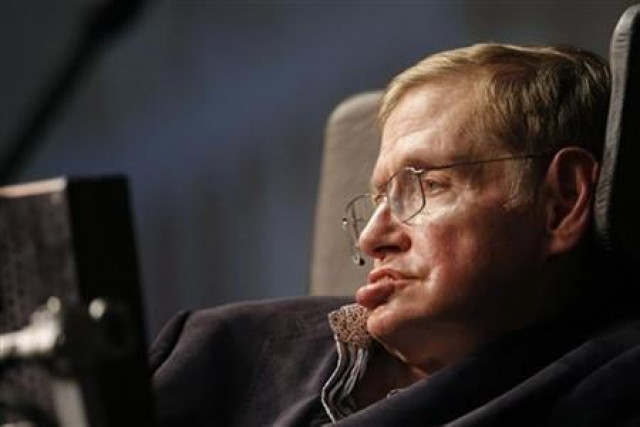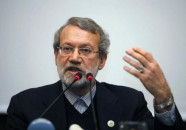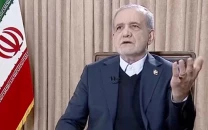Technological advancements may destroy human race, warns Stephen Hawking
'Technology has advanced at such a pace that aggression may destroy us by nuclear or biological war' says Hawking

Stephen Hawking. PHOTO: REUTERS
“Since civilisation began, aggression has been useful inasmuch as it has definite survival advantages,” he said. “It is hard-wired into our genes by Darwinian evolution. Now, however, technology has advanced at such a pace that this aggression may destroy us all by nuclear or biological war. We need to control this inherited instinct by our logic and reason.”
The 75-year-old Theoretical Psyicist remains hopeful about humanity’s future despite showing concerns about “mass species extinction, uncontrollable artificial intelligence and catastrophic global warming”, the newspaper reports.
Here’s Stephen Hawking’s advice for obese people
Hawking has urged governments around the world to be prompt in tackling issues that reverse the effects of artificial intelligence. “We need to be quicker to identify such threats and act before they get out of control. This might mean some form of world government. But that might become a tyranny. All this may sound a bit doom-laden but I am an optimist. I think the human race will rise to meet these challenges.”
The Times reported from a ceremony held in Guildhall in London to make Professor Hawking an honourary freeman of the City – a title given to the likes of Florence Nightingale, Sir Winston Churchill and Sir Tim Berners-Lee.
“There are few people on the world stage, and not just in the field of science, who are as respected, revered and admired as Professor Stephen Hawking,” said the lord mayor, Andrew Parmley. “He has educated and informed generations of people around the world while continuing to push forward the boundaries of academia.”
Parmley added that the professor was being honoured not just for his science but for his public stature as well.
According to the Times, the scroll representing this great honour will be placed in Hawking’s room at his office in Cambridge – a room full of photos of him with the Pope and those from his stint in The Simpsons and accolades, except the Nobel Prize. He realises that the requirements for a Nobel Prize need observation while his work is hypothesised.
Stephen Hawking opens British artificial intelligence hub
“I’m now studying whether one might detect Hawking radiation in primordial gravitational waves,” he adds.
But Hawking is content. “I travel widely, have been to Antarctica and have met the presidents of Korea, China, India, Ireland, Chile and the United States, as well as meeting four popes. I have been down in a submarine, and up on a zero gravity flight in preparation for the flight into space that I’m still hoping to make it on Virgin Galactic. It is a great time to be alive,” he told the reporter.



















COMMENTS
Comments are moderated and generally will be posted if they are on-topic and not abusive.
For more information, please see our Comments FAQ